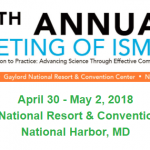Featuring the standoff over open access fees in Germany, a go-to resource for research on Open Science topics and what’s what with Creative Commons licences.
German researchers propose new model for funding open access via Science
This piece reports on the attempt by a consortium of more than 150 German libraries, universities and research institutes to negotiate a new funding model for open access. While some publishers have been receptive to their proposals, Elsevier, publisher of Cell and The Lancet, has not and a standoff is developing between the two sides.
An evidence based case for innovation in scholarly communication via ScienceOpen
This collection of research articles on ScienceOpen includes publications that focus on various aspects of scholarly communication. The articles are well worth reading and may be useful in the construction of evidence-based proposals for change.
The problems arising from ‘open knowledge’ via Medium
This article takes an in-depth look at the conflicting interests that must be overcome to achieve what the author calls ‘open knowledge’ and asks what we really want from information that is freely available to all.
This House believes that the journal impact factor does more harm than good via Charleston Library Conference
This recording of the 2017 Charleston Conference Hyde Park Debate features experts arguing for and against the motion ‘The journal impact factor does more harm than good’. Spoiler alert: the debate was won by Sara Rouhi, who supported the motion.
What are Creative Commons licences and why are they important? via Zenodo
This frequently asked questions document will tell you all you need to know about Creative Commons licensing and open access.
What can be done about ‘bronze’ and delayed open access? via A Way of Happening: a Research Library Blog
This blog post provides a commentary on the recent PeerJ preprint ‘The state of open access’, in which the authors discuss the notion of ‘bronze’ open access. The blogger looks at what we can do to push for full and instant open access and avoid settling for a “half-revolution”.
Another publishing horror story via Retraction Watch
This piece reports a twist in the sadly all-too-common tale of a research article being published with conclusions divergent from the data presented. Even though the journal was alerted before publication to the flaws in this high-profile paper, they published it regardless. The article was open access, and the misleading conclusions were widely shared by mainstream commentators.






